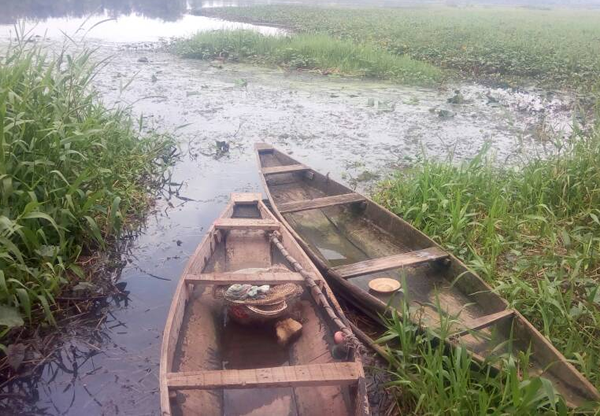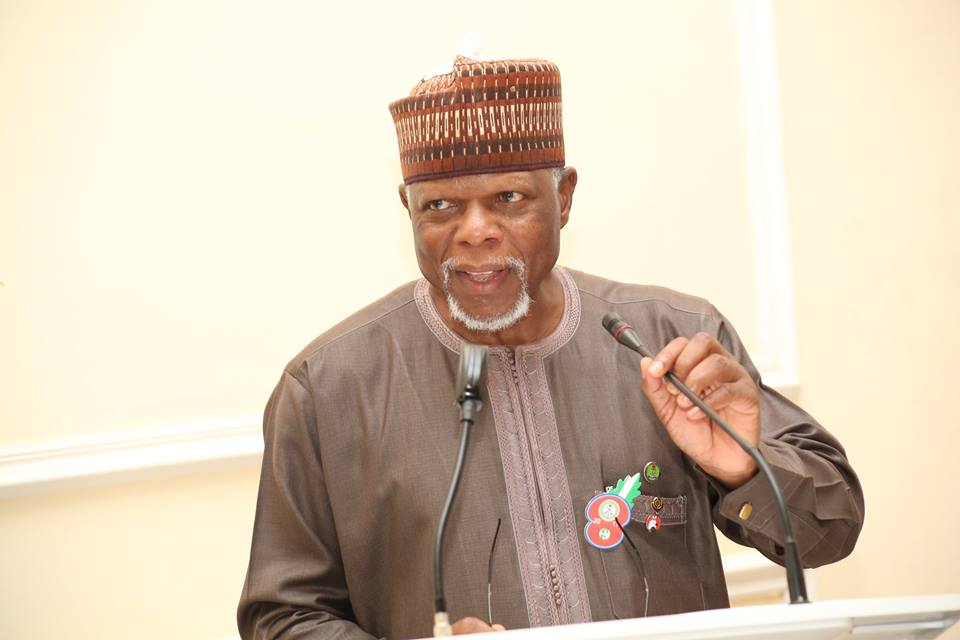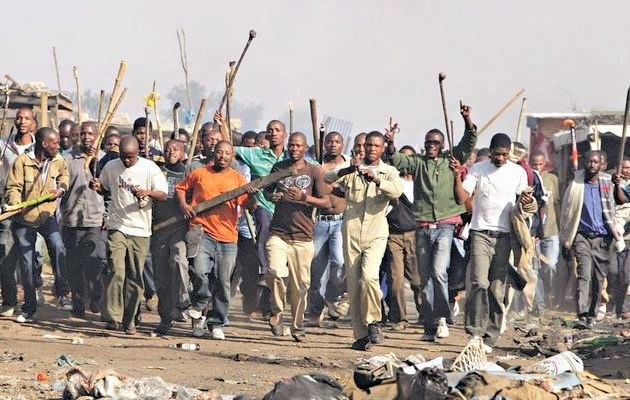It was a sunny afternoon when this reporter arrived at the Eleyele dam zone in Ibadan, Oyo state capital in Nigeria. Traders at the nearby market were enjoying patronage during the weekend – the third in October, while motorbikes raced menacingly on the tarred road in front of the market. Vehicles were forced to apply brakes due to a bad portion at an intersection.
About 100 metres from the market is Eleyele dam zone, an area where over 200 fishermen had adopted as their base until nature turned their fortunes around. Most of them are now operators of commercial motorcycles, casual workers at construction sites, petty traders, while some are still anticipating a “return of the days of yore”.
“During the period of boom, if we had visitors, we would tell them to get ingredients for soup while we rush to the pool to get fish and within 10 minutes, we would have fulfilled our promise. But now we may not get one fish in a week,” Yinka Adesina, one of the fishermen, said.
Dry spells or abundance of rainfall, both of them in excessive form, have become realities even in cities. In both instances, those who bear the brunt are the residents given attendant losses on sources of livelihoods.
Advertisement
LIFE’S BATTLE MUST GO ON
Adesina was in the company of two of his colleagues when this reporter got to an open space which the fishermen use as office. With a sachet of water, loosely referred to as ‘Pure Water’ in Nigerian lingo, in his hand, the man who has a wife and four children, chuckled in response to a point raised by Sule Adamu, the youngest of the three.
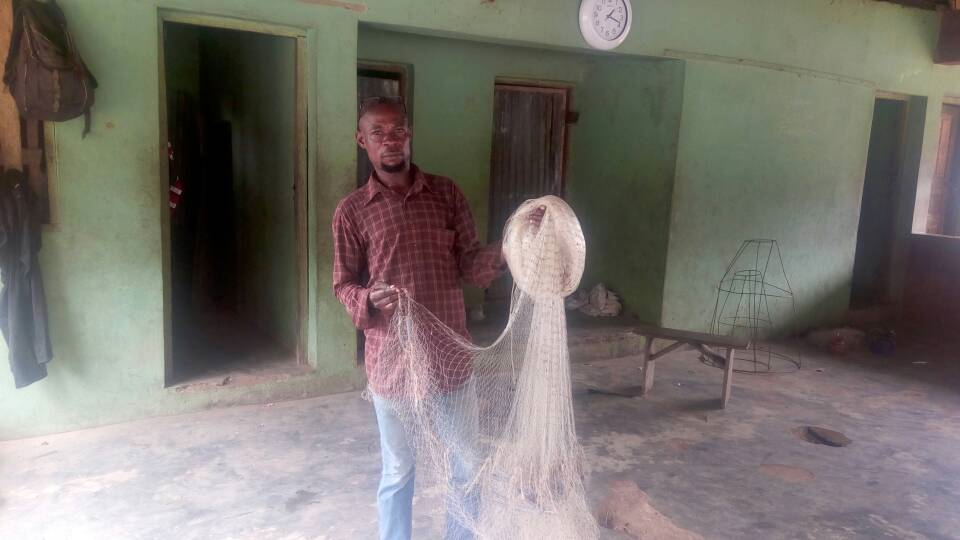
One did not need a psychologist to tell that the laughter was a not a reflection of the state of his mind. Adamu listened through; though it was clear that he was more interested in preparing instruments needed for fishing. Carefully, he attached ropes to hook.
“Pastor! Pastor,” he yelled turning towards the direction of a man in a worn out jean.
Advertisement
Pastor managed to wave at his colleagues.
“Just imagine! That man going there is one of us,” Adesina said in reference to pastor.
“Now, he goes to building sites to carry blocks and gets a stipend at the end of the day. His wife and children must feed.”
HOW DISPLACED FISHERMEN ARE COPING
Pastor is just one of the men whose source of livelihood had been tampered with by nature. Perhaps life was tough in the recent past, the dry river has worsened his economic condition. The situation at Eleyele has been on for at least seven years and it keeps getting worse.
Advertisement
Wasiu Ejalonibu, another fisherman, who had not added his voice to the conversation, decided to speak.
“If you look at the stress we go through, one would just quit but the question is quit for what?” he asked.
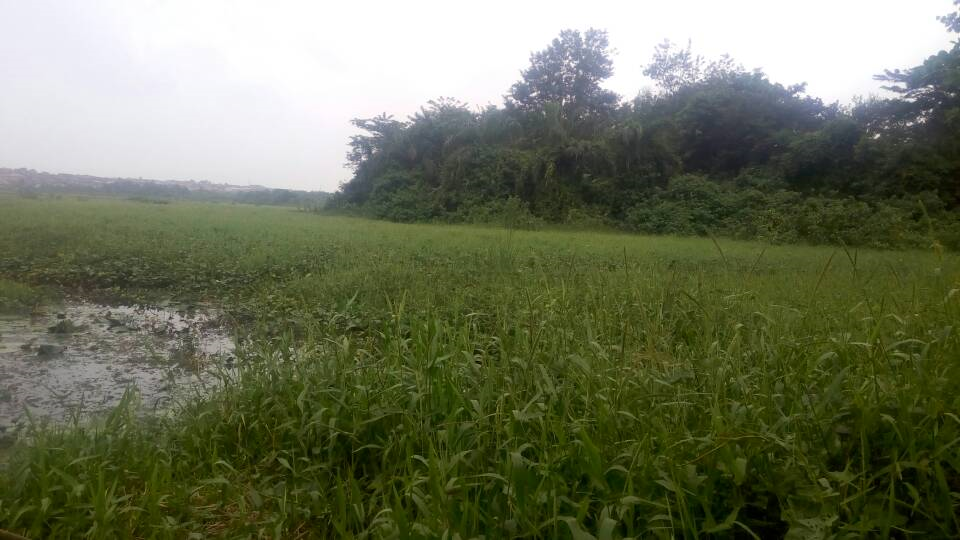
“The government should assist us. We are begging. They are still harassing us for licence fee. If not for the current trend, we would have paid.”
A trip to the river showed a large portion had dried up, while weeds had taken over some part of it. About three families living on the river bank were seen in clusters. They laughed, jeered and tried to make themselves happy.
Advertisement
“We have accepted our fate. We have no choice but to accept things the way they are, or who do we report to when the government has shown us that it does not care,” an elderly man who refused to disclose his identity, said.
“The fish prefer to hide under the grass. Some do not even come to this water again. Fishing is my only means of survival. I trained my children with money raised from this business… but no more. At my age, where else can I work?”
Advertisement
Away from Eleyele is another water source beside MAN fisheries department, Premier Hotel Road, Mokola, still in the ancient city.
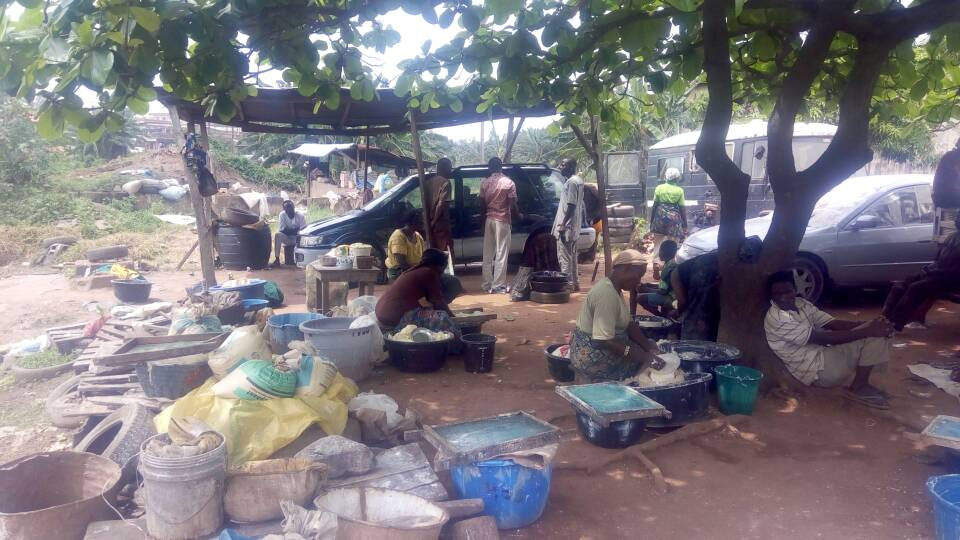
The situation at this water source is worse compared to Eleyele as the entire place had dried up.
Advertisement
“You see seven, eight years ago, people catch fish here,” Tayo Alebiosu, my tour guard, said.
“But what can you find here now? Nothing! I mean nothing at all.”
Advertisement
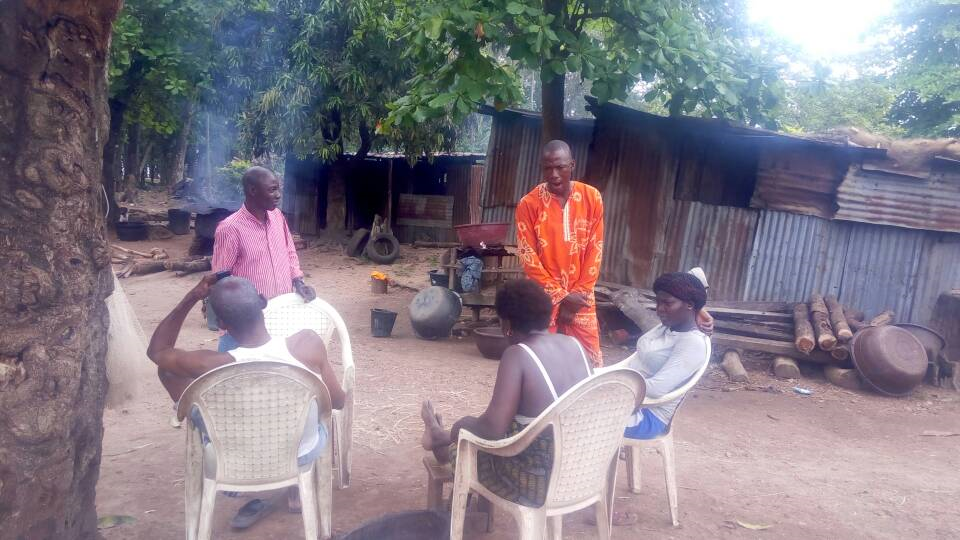
NOT JUST FISHERMEN’S PLIGHT
Different stroke for different folks goes a common saying. Stories abound in different places within the Oyo state capital; the third most populous city in Nigeria.
While the fishermen are battling the effect of drynes of water, flooding has taken its toll on some other residents of Ibadan.
Pepeye at Old Ife road is a middle-class community by Nigerian standard. Named after ducks, the birds which take delight in swimming, one wonders if those who chose the name did so because of the role flood would play in the community at a later date. Residents of this area have lost a lot to water.
The vehicle I was in veered off the dusty road and pulled over as Alebiosu exchanged pleasantries with the people we met at an open space beside a bridge. There were different sets of artisans at the place – taxi drivers, motor mechanic, and women making a Nigerian staple called fufu. It is made from cassava. It is a delicacy savoured mainly in the southern parts of Nigeria. The women enjoy patronage for if the reverse had been the case, they wouldn’t have preferred Pepeye with its threats from nature, to a distant mile, which the government relocated them to as a result of flooding.
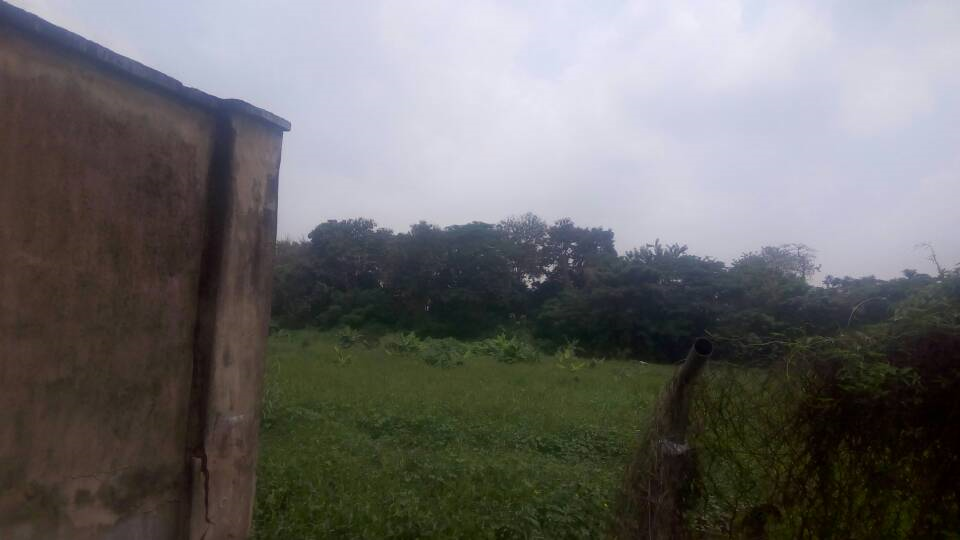
One after the other, the people struggling to survive, recounted their stories.
“Flooding is a major problem here. When it rains heavily, we record losses,” said a woman identified as Mama Ojo.
“The water destroys our labour, leaving us to start from the scratch. The government intervened by relocating us but the new place we were taken to is not good for our business.
“We spend a lot on transport and don’t make money at that place unlike here where we are able to survive.”
‘JOURNALISTS WON’T SOLVE OUR PROBLEM’
Mama Ojo ended the conversation after one of her colleagues made her believe that it was pointless pouring out her heart to a journalist.
“Aren’t you fed up with discussing with these reporters? What has changed since the last time we spoke with them?” The woman asked.
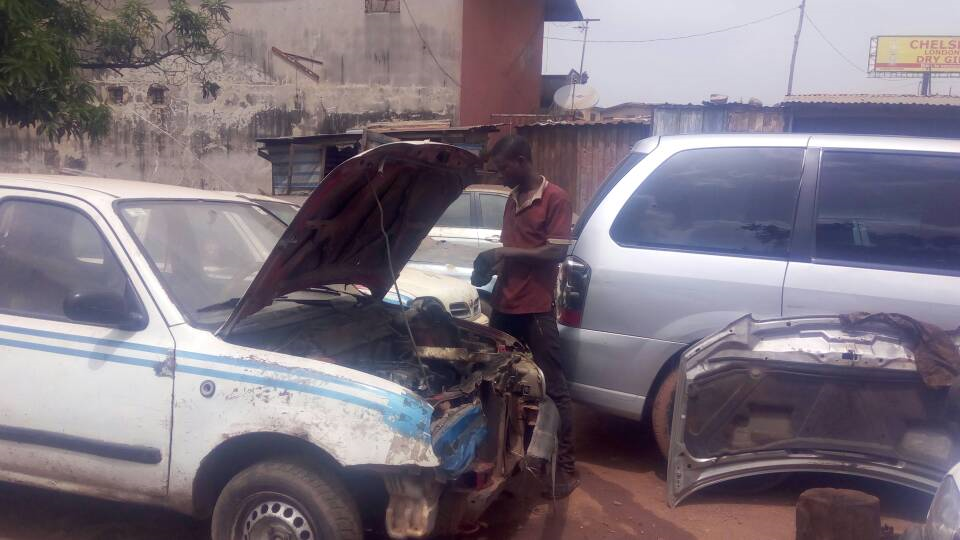
A car dealer, who also repairs vehicles spoke on how flood damaged many vehicles. He took the reporter round the place, as he bemoaned his fate.
Two streets away from Pepeye are some residential houses which have been abandoned as a result of flood. The area look deserted. Two female teenagers who were scooping water from a well inside one of the abandoned compounds refused to comment, rather referring the reporter to two men who were on the opposite side.
They narrated their woes and how they had been forced to relocate.
“We had to move out of houses we built with our money because of the constant flood,” one of the men said.
“That’s my own building there,” the man said pointing to a one-storey building. “I moved my family to my younger brother’s place while I am squatting with a friend around here. Nature has rendered me homeless.”
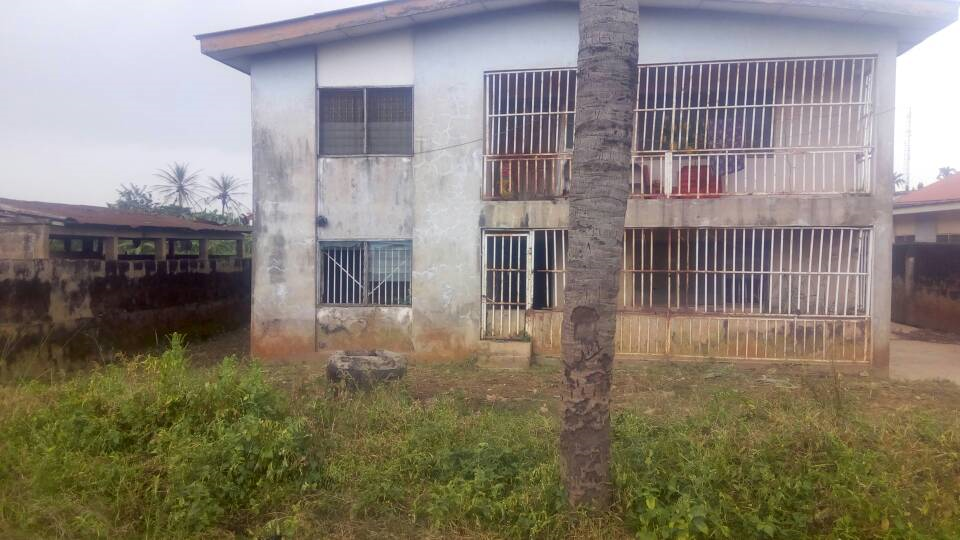
Efforts to speak with Adisa Isola, the Oyo state commissioner for the environment and water resources, proved abortive as he neither answered calls nor responded to a text message sent.
Back in August when Pepeye community experienced flooding, Isola had blamed the situation on those who built houses and shops on water channels.
“Many people are complying with environmental laws in the state now. We started preparing for this in December 2016 through a World Bank assisted project. Fourteen rivers and streams were dredged. This year, we have dredged 36 streams and rivers,” he had said.
“This cannot be repeated every year because it is just a palliative measure. That is why we are working on three master plans for Ibadan that will take care of this issue.
“The attitude of our people is responsible for this flooding. They have refused to obey the setback rules and instead, they build houses on river channels. It puts pressure on the drainage channels.”
UNHCR estimated that each year, nearly 20 people are forcibly displaced every minute, while an average of 21.5 million people are forced to migrate as a result of weather-related natural disasters.
It is not only in Ibadan that residents are feeling the effect of climate change, there are many of such places in the country. Two months ago, the Benue state Emergency Management Agency said 110,000 people in the north-central state were affected by the flood from rain which did not last three days.
It would be unfair to blame government alone for devastating effect of climate change, but it has a major role to play in rescuing the environment. The government needs to strengthen its response to climate change and improve infrastructure.
Flood disasters in Africa have been worsened by years of poorly-planned drainage systems. The unpredictability of the availability of water or not in places where such conversations never existed years ago points again at how climate change is an environmental challenge that would not go away by a simple wish.
This story was done for the 2017 Reporting Fellowship on Migration and Climate for Nigerian Journalists

